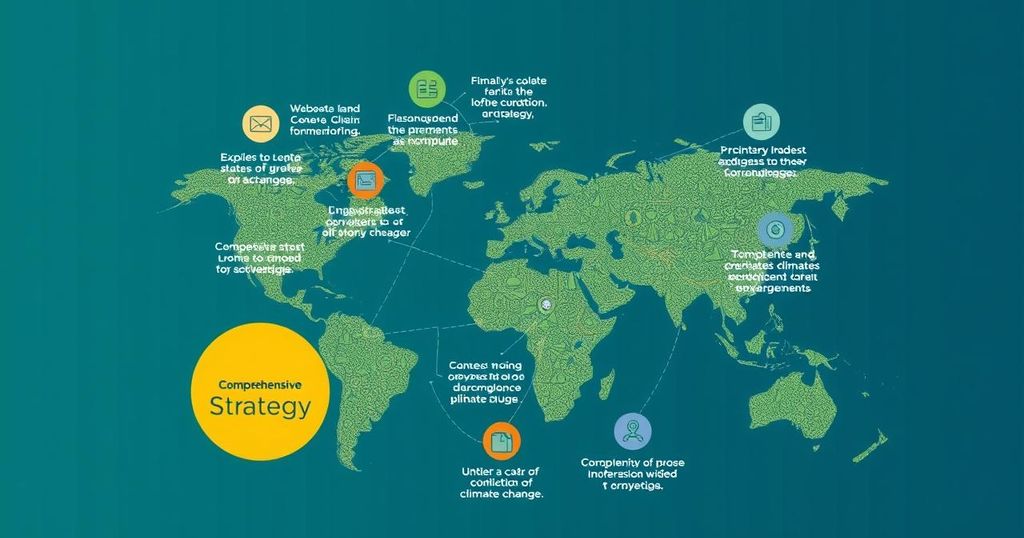Systemwide Approach Required to Combat Climate Change

The article critiques the performance of international financial institutions as they approach their 80th anniversary, highlighting three main challenges: the deterioration of global commons, the need for effective collective action, and the slow pace of progress in addressing climate change. It emphasizes the significant role of China in climate initiatives and the need for a united approach involving both public and private sectors to secure the necessary funding and governance for climate action.
As the Bretton Woods institutions approach their 80th anniversary in 2024, the effectiveness of international financial institutions in promoting global economic growth and poverty alleviation has come under scrutiny. While substantial progress has been made in lifting populations out of poverty, particularly in nations like China, India, and Indonesia, ongoing financial crises highlight significant vulnerabilities. Presently, three primary challenges jeopardize the historic gains in living standards: the deterioration of global commons, a pronounced need for collective action, and an alarming pace of progress in tackling these pressing issues. Climate change, along with other transnational crises, threatens to derail hard-won advancements. The obstacles to timely and impactful responses include escalating complexities in managing global commons, increasing geopolitical fragmentation, and a reduction in cooperative dynamics reminiscent of the Cold War era. The ongoing conflicts, such as the war in Ukraine, have further strained international relations, leading to rampant protectionism, energy insecurity, and increased military spending. The International Monetary Fund (IMF) has projected that fragmentation may reduce global GDP by as much as 7%. Given that future global growth will increasingly stem from nations in the Global South, which are also on the frontline of climate-related challenges, there is an urgent need to establish governance structures that support sustainable development amidst adversities. China is highlighted as a pivotal player, having made substantial strides in emissions management, thus offering valuable lessons for other nations. With annual financing requirements to combat climate change estimated between $3 trillion and $4 trillion, mobilization of resources from the private sector is essential. Key impediments within both the public and private sectors include gaps in governance, implementation, and accountability regarding climate policies. The absence of a centralized global climate governance body exacerbates these challenges, necessitating urgent reform of the financial architecture to effectively coordinate climate financing and policies. The discourse around establishing a new institution for tackling these gaps remains complicated by present-day geopolitical tensions. To harness private sector capabilities, the implementation of global carbon trading schemes, a mechanism for decarbonization plans, and the introduction of carbon taxes will be vital. Additionally, effective monitoring of corporate sustainability disclosures is imperative for accountability in both financial and sustainability contexts. As climate change poses a severe threat to the global community, a collaborative, system-wide approach involving both public and private sectors is essential to address this crisis effectively.
The article discusses the upcoming 80th anniversary of the Bretton Woods institutions and explores the evolution of international economic regulation since World War II. It emphasizes the interconnected challenges of climate change, geopolitical fragmentation, and economic governance, which threaten the progress made in poverty alleviation and global living standards. The critical role of major economies, particularly China, is analyzed in relation to climate change initiatives. Finally, the text underscores the necessity for cooperation between public institutions and the private sector to effectively address the climate crisis and mobilize necessary funding.
In summary, the article identifies the critical challenges facing the global economy, particularly the pressing need to address climate change through enhanced cooperation and innovative financial mechanisms. It advocates for the restructuring of international financial governance while highlighting the indispensable role of the private sector in mitigating climate impacts. Ultimately, overcoming the silos of the public and private sectors through a system-wide approach is imperative for meaningful progress in confronting climate change and ensuring sustainable global growth.
Original Source: www.chinadaily.com.cn






